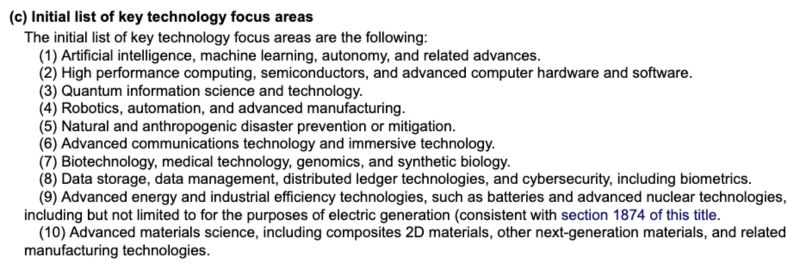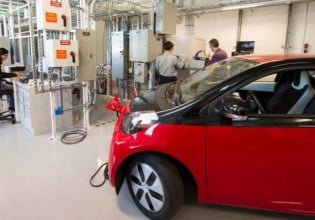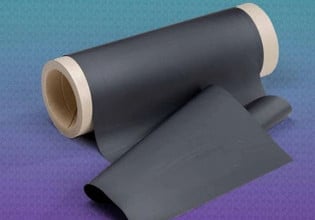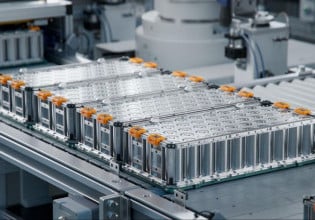$500M in Grants Target Metros Vying to Become Self-Sustaining Tech Hubs
A $500 million program drawn from the coffers of last year’s CHIPS and Science Act will serve federal grants to regional technology hubs focusing on artificial intelligence, advanced computing, energy technologies, and other high-demand markets.
The U.S. Department of Commerce’s Economic Development Administration (EDA) recently launched a $500 million grant program to boost economic development in high-demand tech markets across the nation’s metropolitan and micropolitan areas.
New York skyscrapers. Image by used courtesy of Pixabay
Aptly named “Tech Hubs,” the program will designate at least 20 such centers nationwide and award $15 million in strategy development grants to increase their capacity to commercialize, deploy, and manufacture emerging technologies such as high-performance computing, semiconductors, robotics/automation, energy applications like batteries, and other areas.
The EDA recently availed the first of two funding opportunities, with applications due on Aug. 15, 2023. The recipients—public-private industry consortia—will use the funding to coordinate proposals for implementation grants in the following rounds of the competition. The second phase, expected to launch this fall, will extend implementation awards to five to 10 designated tech hubs selected in the first round, each receiving $50 million to $75 million across multiple projects.
The program draws funding from the 2022 CHIPS and Science Act, a $280 billion package providing the semiconductor industry with investment tax credits, $39 billion in subsidies for domestic manufacturing, and another $13 billion for research and workforce training. The legislation unlocked $10 billion in stimulus funds to be doled out over five years for regional innovation hubs focusing on artificial intelligence, advanced manufacturing, and renewable energy. The new $500 million program is part of that authorization, enabled through this year’s appropriations by Congress.
Tech Hub Criteria and Focus Areas
Grants and “Tech Hub” designations will be awarded to regional consortia—a combination of entities across higher education, the private and public sectors, federal laboratories, economic development groups, and unions or workforce training organizations. Eyeing regions with the potential to become globally competitive within ten years, the program targets metropolitan statistical areas (MSAs) and smaller-scale micropolitan statistical areas (μSAs) that oversee assets, capital, research and development, workforce, and infrastructure tied to the hub’s core technology area.
The EDA’s 37-page notice of funding opportunity (NOFO) document notes that the program isn’t intended to fund basic research activities. It takes a broader angle, advancing regional recipients’ capacities to commercialize, deploy, and domestically produce technologies in the respective focus areas. Applicants must specify whether they want to become designated “Tech Hubs” only (which is unfunded), receive strategy development grants ($400,000 to $500,000 to plan implementation funding proposals), or both.
The EDA expects most projects will range from 1.5 to three years. The first tranche of funds comes with a federal grant-matching rate of up to 80%. And if consortia have assets in small/rural or other underserved communities within their larger MSA or μSA, the federal share rises to 90%.
Video used courtesy of the U.S. Economic Development Administration (EDA)
Applicants will choose an industry focus from 10 topics, shown in the screenshot below. The list covers a range of markets facing high demand across America’s economy, including energy applications like batteries and advanced nuclear reactors, manufacturing tech such as robotics and automation, and computing fields such as semiconductors and quantum information science. It also covers healthcare-related markets, including biotechnology, medtech, genomics, and synthetic technology.
List of Tech Hub focus areas. Image used courtesy of the United States Code website
More broadly, the program aims to address gaps in national security, manufacturing and industrial productivity, workforce development, climate change and sustainability, and inequitable access to education and other services. All are core to the U.S.’s competitiveness with China and other world-leading tech hubs.
Expanding America’s Tech Sector Beyond Silicon Valley
The program ostensibly aims to combat China’s dominant share of the semiconductor supply chain and the emerging applications chips serve. Part of that effort involves infusing federal cash into regional trade and R&D hubs outside the usual hotspots of Silicon Valley, Austin, Seattle, New York City, Boston, and Washington, D.C.
Plenty of cities nationwide are rising the ranks for tech workforce development. CBRE’s Scoring Tech Talent 2022 report lists emerging players like Denver, Atlanta, Baltimore, Phoenix, Salt Lake City, and North Carolina’s Raleigh-Durham region.
In a podcast interview with the Federal News Network earlier this year, Assistant Secretary of Commerce for Economic Development Alejandra Castillo said the Tech Hub program would look at regions with assets that can be scalable with a federal infusion of resources and capital.
U.S. Economic Development Administration summary of the geographic eligibility requirements for the Tech Hubs program. Image used courtesy of the EDA
Of the 20 or more Tech Hubs selected, some must meet the requirements for geographic diversity to receive strategy development grants. According to the EDA’s frequently asked questions page, at least one-third of the mix must benefit small/rural communities. Also, at least one must be headquartered in low-population states (those without an urbanized area of over 250,000 people), such as Alaska, Maine, Montana, New Hampshire, North Dakota, South Dakota, Vermont, West Virginia, and Wyoming. It will also designate at least two Tech Hubs that aim to benefit underserved communities in/near metro areas.









